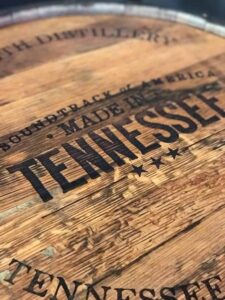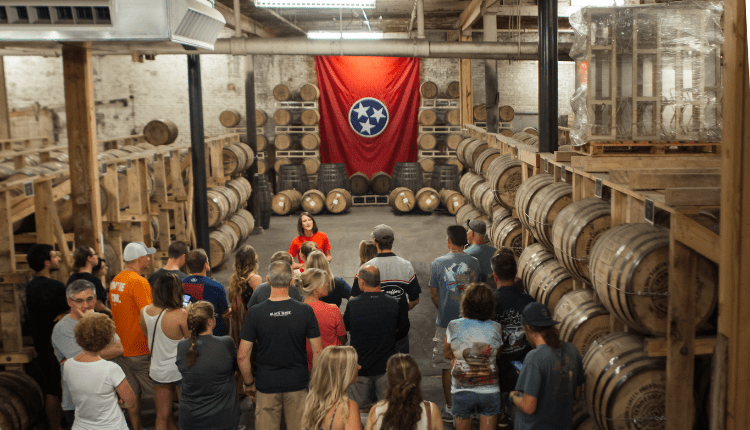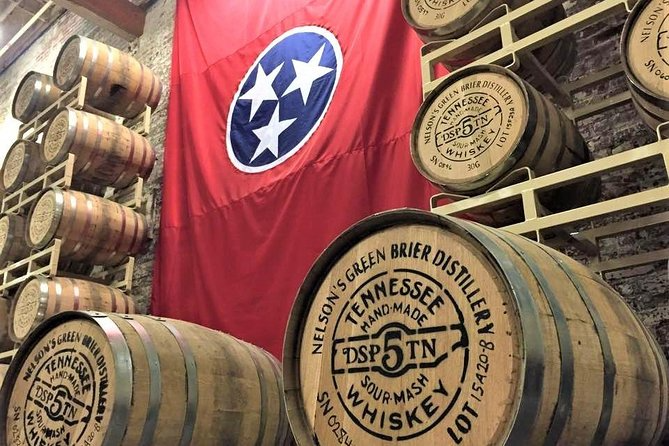Nashville day drinking at finest distilleries
bring ID, cash or card
What’s included?
Base on option selected
- Professional Guide
- Transportation via bus/ Golf Cart
- Visit 1,2 up or to 4 of Nashville’s popular breweries and/or distilleries
- Pass by popular murals around the city located between stops
- You may get the opportunity to meet the people behind the drinks and learn how they make them
- Professional/Local Guide
- Tour & Tasting at Each Distillery **if option selected**
Much like the early settlers in Kentucky, the pioneers who landed in Tennessee found a landscape ripe for distilling, with its natural limestone-filtered water, varied seasonal temperatures and enriched soil that could grow healthy fields of grains. In the late 1700s and 1800s, there were hundreds of farm-based distilleries throughout Tennessee, as well as moonshiners who passed down distilling traditions generation after generation.
Tennessee was a major player in the whiskey industry leading up to the turn of the 20th century and had just as much clout as Kentucky bourbon, but all that momentum came to an abrupt halt in 1910. While most states in America endured 13 years of Prohibition, the banning of alcohol started earlier in Tennessee and lasted longer as well. That incomprehensible number is 28 years. Let that sink in for a moment.
But first … while there were hundreds of distilleries producing whiskey in the state before those long, dry 28 years, let’s take a look at the timeline of Tennessee distilling in regard to the biggest two.
1866 — Jack Daniel Distillery is Established

Jack Daniel’s Distillery is the oldest registered distillery in the United States, constructed near the mineral-rich Cave Spring Hollow in Lynchburg. Jasper Newton Daniel, aka Jack, learned the craft from his caretaker, the Rev. Dan Call, and an enslaved man named Nathan “Nearest” Green.
Due to religious conflicts, Call turned over the distillery to Jack and Nearest, and the two created the Old No. 7 brand of Jack Daniel’s that remains the best-selling American whiskey in the world today. They also made their whiskey perfecting the charcoal-mellow filtration method known as the Lincoln County Process. This extra step distinguishes Tennessee whiskey from bourbon and is said to create a purer whiskey.
The story of Jack Daniel has become a legacy and continues to be written as the distillery innovates. Guests can learn the first-hand the history of Jack Daniel’s Distillery, tour the cave where the essential limestone-filtered water ingredient resides, walk the halls of the barrel rooms and the grounds of the distillery on an “Angel’s Share” tour, and enjoy a tasting of the premium whiskeys on a Jack Daniel’s Tour with Mint Julep Experiences
1878 — George Dickel Starts Cascade Hollow Distillery
George Dickel was a well-known Nashville merchant who decided to dip his toes into the whiskey industry. So in 1878, he bought the largest share in Cascade Hollow Distillery, a new operation opening in the nearby Coffee County. The distillery flourished until Dickel’s death in 1894, and his wife Augusta continued its success with business partner V.E. Shwab.
1909/1910 — Manufacturer’s Act Stops Distilling
In the early 1900s, the Temperance Movement was gaining traction in Southern states, especially Tennessee. So in 1910, the state government passed the Manufacturer’s Act, which prohibited the production of alcoholic beverages. The other part of the bill outlawed the sale or consumption of alcohol within four miles of private or public schools.
All distilleries were shut down.
1910 — Jack Daniel’s Distillery Moves to St. Louis & Birmingham, Ala.
Due to Prohibition, Jack Daniel’s nephew, Lem Motlow, decided to relocate distilling operations to St. Louis and Birmingham, but none of the production from these locations was ever sold because of quality issues.
1910 — George Dickel & Co. Moves to Louisville
During Tennessee’s Prohibition, George Dickel & Co. moved its operations to Louisville’s Stitzel-Weller Distillery, where it continued to produce whiskey even during national Prohibition using a medicinal license.
1933 — National Prohibition Ends
The end comes to Prohibition at a national level, but no counties in Tennessee are allowed to distill alcoholic beverages still.
1938 — Statewide Prohibition Ends
Five years after national Prohibition ends, Tennessee state officially ends Prohibition. Even though the ban was lifted for all 95 counties in Tennessee in 1938, only Lincoln, Moore and Coffee counties were allowed to bring back distilling operations.
Between 1938 and 1997 Whiskey Distilleries Reopen in Tennessee
1938 — Jack Daniel Distillery Reopens in Lynchburg (Moore County)
1958 — George Dickel Reopens Cascade Hollow in Tullahoma (Coffee County)
1997 — Prichard’s Distillery Opens in Kelso (Lincoln County)
2009 — More Counties Get Green Light to Distill
It wasn’t until 2009 that Tennessee lawmakers passed a law allowing the legal production of whiskey and other distilled spirits in the 41 counties that already have approved retail package sales and liquor-by-the-drink sales. The three legally operating distilleries (mentioned above) were about to get some company.

2013 — Tennessee Whiskey Defined
In 2013, Gov. Bill Haslam signed House Bill 1084 that further defined Tennessee whiskey — other than being whiskey made in Tennessee. The new law requires distilleries to use the Lincoln County Process as well as the existing requirements for making bourbon. Prichard’s Distillery is the only one exempt from using the Lincoln County Process, per the law.
Curious to know more behind what qualifies as Tennessee whiskey? Tennessee whiskeys are held to the same legal definition as bourbon. But, they take it one step further with a filtering process through maple charcoal. This is known as the “Lincoln County Process.”
Otherwise, Tennessee whiskey must be:
- Made in Tennessee.
- At least 51% corn.
- Distilled at no higher than 160 proof.
- Barreled at no higher than 125 proof.
- Put into a new, charred oak barrel.
- cc
2017 — Tennessee Whiskey Trail Begins
As more and more whiskey distilleries started popping up around Tennessee in the 2000s, the Tennessee Distillers Guild decided to create a collaborative tourism experience much like the highly successful Kentucky Bourbon Trail®. In 2017, the Tennessee Whiskey Trail was launched featuring a passport-style website and app where tourists could collect stamps after visiting each of the state’s distilleries, which were divided into three regions: West Tennessee, Middle Tennessee and East Tennessee.

